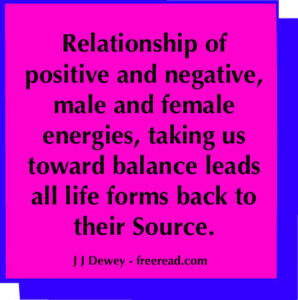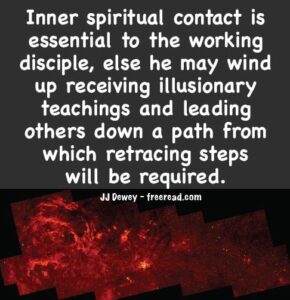
The Path of Truth
I never thought I would have to defend the idea that telling the truth is a good thing and lying is not so good, but after reading the post by Christopher Nemelka on March 29, 2011 I feel for the first time in my life that I need to write on this very subject.
Every teacher I have encountered in the past, good or evil, in the light or dark, mean spirited or kind has presented themselves as truth tellers – even champions of it. Few will admit to lying about anything and if caught will at least defend themselves as trying to present truth. Even Satanists claim to be presenting the truth.
Chris is not only politically (or spiritually) incorrect (which attitude I often admire) but he takes his contrary view to a new dimension when he makes statements like:
He is teaching “under the mandate of the lying God.”
“BY GOD … literally … WE ARE COMMANDED TO LIE!” (caps in original)
“IF I DID (tell the real truth) I WOULD BE LUCIFER’S MESSENGER, NOT GOD’S.”
These statements ought to get any readers attention. If nothing else, these quotes alone show that Nemelka has an unusual approach. Now let us examine his post in more detail.
According to him he always told the truth to the best of his ability until June 16, 1987. From that date forward much of his thinking was reversed.
He says:
“Once I gained a proper perspective of real truth, I was filled with consternation that ‘lying’ was part of the plan for mortality, and that the very first person to lie, was not Eve, it wasn’t even Lucifer, IT WAS ELOHIM!”
“That’s right! Elohim, the God of all Gods.”
To back up his case he reviews the account of the fall of Adam and Eve. Here are pertinent quotes from the Bible about it:
Genesis2:16 And the LORD God commanded the man, saying, Of every tree of the garden thou mayest freely eat:
Genesis2:17 But of the tree of the knowledge of good and evil, thou shalt not eat of it: for in the day that thou eatest thereof thou shalt surely die.
Genesis3:1 Now the serpent was more subtil than any beast of the field which the LORD God had made. And he said unto the woman, Yea, hath God said, Ye shall not eat of every tree of the garden?
Genesis3:2 And the woman said unto the serpent, We may eat of the fruit of the trees of the garden:
Genesis3:3 But of the fruit of the tree which is in the midst of the garden, God hath said, Ye shall not eat of it, neither shall ye touch it, lest ye die.
Genesis3:4 And the serpent said unto the woman, Ye shall not surely die: 3:5 For God doth know that in the day ye eat thereof, then your eyes shall be opened, and ye shall be as gods, knowing good and evil.
Genesis3:6 And when the woman saw that the tree was good for food, and that it was pleasant to the eyes, and a tree to be desired to make one wise, she took of the fruit thereof, and did eat, and gave also unto her husband with her; and he did eat.
Genesis3:7 And the eyes of them both were opened, and they knew that they were naked; and they sewed fig leaves together, and made themselves aprons.
To this scripture Nemelka says that God lied and Lucifer told the truth, but was this the case?
Actually, Nemelka is far from being the first to make this accusation. It has been made many times by atheists as well as a number of spiritual teachers including Madame Blavatsky.
The problem is that because of the imperfection of words both interpretations can be supported, but few if any outside of Nemelka see lying as a good thing. The side where truth lies should be where we place our allegiance.
Now some, like Nemelka say that God lied when he told Adam this: “In the day that thou eatest thereof thou shalt surely die.” Adam lived over 900 years after he ate the fruit so he didn’t die in the day he ate the fruit – so they claim.
Do they have a point?
Not really. For one thing do you really think Hebrew scribes would let something stand for thousands of years that presents God as a liar? Of course not. Followers are not perfect and they will protect their own and change the text if necessary to protect their God from such an accusation.
So why then does the text read as it does where it is as ambiguous as it is?
The reason is that we are not reading the Hebrew, but an orthodox English translation which often distorts the Hebrew meaning. To get as close as possible to the original meaning we must look at the Hebrew.
First, let us look at the English translation again.
“But of the tree of the knowledge of good and evil, thou shalt not eat of it: for in the day that thou eatest thereof thou shalt surely die.” Gen 2:17
The first word to note is “day” which comes from the Hebrew word YOWM. This doesn’t necessarily mean a 24-hour day but can also be translated as “time” implying an unspecified period of time.
A key to understanding lies in the phrase “shalt surely die.” This is composed of a repetition of the same Hebrew word for “die,” which is MUWTH. So the verse reads “for in the day that thou eatest thereof thou shalt surely (muwth) die (muwth)”
Thou shalt die, die doesn’t make a lot of sense so what is the explanation? The two words are slightly different in the Hebrew. The first die (muwth) is in the infinitive tense and the second in the imperfect.
The repetition of the two words in the two tenses is interpreted by scholars to mean emphasis so most translations render it as, “surely die,” or “certainly die.”
If we translated it literally it would read, “for in the day that thou eatest thereof thou shalt be dying and die,” or “dying you shall die.” The Concordant Bible’s literal translation is, “for in the day you eat from it, to die shall you be dying.” Young gives the translation as “dying thou dost die.”
The repetition of the word “die” does tell us that God was making a very definite and sure statement that Adam was going to experience the process of dying if he partook of the fruit.
There could be another interesting reason for the repetition of the word “die.” This could be symbolic of two kinds of death. After all, death does not mean that we no longer exist, but death is a separation of some kind. With physical death we are separated from our bodies but there is a second death called a spiritual death where we become separated from God. The day (or time) that Adam and Eve partook of the fruit they suffered a spiritual death and were separated from the direct presence of God. Also beginning on that day or time they started the process of dying which ended in physical death.
The trouble with words is that they rarely communicate the whole thought of the sender.
Suppose I tell my kid, “If you start eating lots of candy bars then you’ll get cavities.”
Even though this is a true statement a young kid is only left with a partial understanding. He may assume that he will get cavities the next day for the communication did not reveal anything about the time factor.
Even so Adam and Eve didn’t know if they would die immediately or after a period of time. They probably didn’t know they would suffer from two different kinds of dying.
Then after receiving the commandment Satan comes along and tells Eve;
“Ye shall not surely die: For God doth know that in the day ye eat thereof, then your eyes shall be opened, and ye shall be as gods, knowing good and evil.” Genesis3:4-5
Here Nemelka claims that Satan was telling the truth whereas God was lying. But was Satan telling the truth?
Notice that Satan did not say, “You shall not die TODAY,” but just a flat, “You shall not die.”
Now after they partook of the fruit it may have seemed like Satan told the truth for they were still alive even after their bodies changed from an immortal to a mortal state. But, after 930 years Adam did finally die, so Satan’s proclamation that they would not die was a lie and deceptive.
Satan’s next statement had truth and error in it for he said: “then your eyes shall be opened, and ye shall be as gods, knowing good and evil.”
This statement was true in that they learned about good and evil but it was not true in that they would be like the gods and not die.
Our imperfect minds could be mislead by either God or Satan, but God told the literal truth and Satan’s words were literally not true.
When those on the side of the light speak their words are true, but they rarely reveal all the details.
“It is the glory of God to conceal a thing: but the honour of kings is to search out a matter.” Proverbs 25:2
To conceal a thing is not a lie. A lie consists of words spoken or written that are intentionally not true. All of us think many thoughts we do not vocalize and we are not lying when we do not speak them all.
Jesus verified that Satan lied for he said this to the Jews who were about to stone him:
“Ye are of your father the devil, and the lusts of your father ye will do. He was a murderer from the beginning, and abode not in the truth, because there is no truth in him. When he speaketh a lie, he speaketh of his own: for he is a liar, and the father of it. And because I tell you the truth, ye believe me not.” John 8:44-45
Jesus acknowledged flat out that Satan murdered and lied in the beginning and he presented himself as one who tells the truth. He even said:
“And ye shall know the truth, and the truth shall make you free.” John 8:32
How often did Jesus say, “Verily, I say unto you…” Verily can be more literally translated as “truly,” or “of a truth I say unto you.”
The side of light and love always places great emphasis on telling the truth for often it was written that Jesus was “full of grace and truth.” John 1:14
God himself is referred to as a “God of truth.”
“Into thine hand I commit my spirit: thou hast redeemed me, O LORD God of truth.” Psalms31:5
“That he who blesseth himself in the earth shall bless himself in the God of truth;” Isa 65:16
“He is the Rock, his work is perfect: for all his ways are judgment: a God of truth and without iniquity, just and right is he.” Deut32:4
“And it is the Spirit that beareth witness, because the Spirit is truth.” I John 5:6
We could talk indefinitely from the scriptures about God being on the side of truth. The only way to come to any other conclusion is to discard them completely. If Nemelka’s followers discard them completely then their only outside source of spiritual truth will be him.
That said, let us look at a few more of Nemelka’s comments.
He tells us:
“…our entire mortal existence is one big, divinely perpetuated lie, orchestrated by our Creators.”
He is using the word “lie” incorrectly here. “Illusion” is the correct word. We do not say a magician is lying when he demonstrates illusion. Illusion and truth are both here to give us experience.
Then he says, “Mortal human beings are all consummate liars.”
This may be his experience but not mine. Most of my friends are consummate truth tellers.
He believes we lie if we do not tell an unattractive person they are ugly or express a controversial, opinion.
He doesn’t seem to realize that it is not a lie to not reveal all your thoughts. The important thing is that all the words you speak are true to the best of your knowledge. This is the code I live by.
Then he says:
“I realized that lying was much better for the human race than telling the real truth.”
This is perhaps the most elusive belief I have seen a supposed spiritual teacher advance.
Nemelka claims to have translated the Sealed Portion of the Book of Mormon and presented it as truth. Now he says this about his work:
“And then I was instructed to introduce another set of scripture to lie about a lie, which countered another lie that we had invented to try to get us to stop lying to each other.”
So, he says the Sealed Portion was a lie about a lie (The Book of Mormon) which countered another lie (the Bible).
Then Nemelka makes this fantastic statement:
“I have publicly admitted that I have lied, deceived, and manipulated. But I have done so …
“IS THE WORLD READY TO HEAR THIS?
“… under the mandate of the lying God who placed us here on this godforsaken planet in the first place!”
There is a huge problem with the idea that God is full of lies toward us.
If God lies then we cannot depend on His word or the word of messengers on his side.
If we cannot depend on God’s word then we cannot trust God.
If we cannot trust God then we can have no faith.
Without faith there is no hope.
Without faith and hope there is no love.
Without faith, hope and love, there is only despair.
Is the plan behind the Father of lights one of despair?
No. A thousand times no. It is one of love leading to hope and peace and empowerment.
Nemelka ends with this confession:
“I’ve never liked what I have been doing, and I never will. I would rather work for Lucifer.”
I’d feel the same way if I thought God wanted me to spread lies.
On the other hand, I concentrate on telling the truth and giving out the highest truth I can understand. I love doing this because truth and love go hand in hand.
I suggest to Nemelka that he flee from any God, angel or messenger whose message is based on lies and concentrate on the truth. If he does this his zest for a living work will be joyful.
Truth exists, only falsehood has to be invented. – Georges Braque
April 1, 2011
Join JJ’s Facebook group HERE
Index for Original Archives
Index for Recent Posts
Easy Access to All the Writings
For Free Book go HERE and other books HERE









